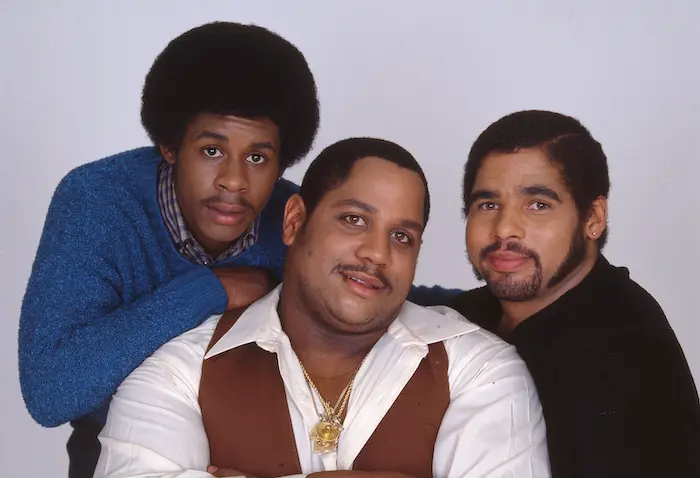Rap music, a genre that has revolutionized the music industry, has deep roots and a rich history. The origins of rap can be traced back to the late 20th century, when it began to emerge as a distinct form of musical expression. Determining the “first” rap song is a subject of much debate among music historians and enthusiasts. This article explores the early influences, significant milestones, and key contenders for the title of the first rap song ever.
I. Early Influences on Rap Music
Rap music did not emerge in a vacuum. It was influenced by a variety of musical and cultural traditions, including:
1. African Oral Traditions
African griots, or storytellers, have a long history of rhythmic storytelling. These oral traditions laid the groundwork for the call-and-response patterns and rhythmic speech found in rap.
2. Jazz and Blues
Jazz and blues artists often used spoken word and improvisation in their performances. Artists like Louis Armstrong and Bessie Smith incorporated elements that would later be seen in rap.
3. Jamaican Dub Music
In the 1960s and 1970s, Jamaican DJs like DJ Kool Herc brought dub music to the Bronx. They used turntables to create extended instrumental breaks, which allowed them to speak over the music, a precursor to modern rap.
4. The Beat Poets
Beat poets like Allen Ginsberg and Jack Kerouac used free verse and a rhythmic style of delivery that influenced early rappers.
II. The Early Years: Proto-Rap Songs
Several songs from the 1960s and 1970s exhibit characteristics of rap music, although they may not be considered rap by today’s standards.
1. “Here Comes the Judge” by Pigmeat Markham (1968)
This novelty song features spoken word verses over a funky beat. Markham’s delivery is rhythmic and humorous, resembling early rap.
2. “The Revolution Will Not Be Televised” by Gil Scott-Heron (1970)
Gil Scott-Heron’s spoken word performance over a jazz-influenced track is often cited as an early example of rap. His politically charged lyrics and rhythmic delivery foreshadowed the socially conscious rap of the 1980s and 1990s.
3. “King Tim III (Personality Jock)” by The Fatback Band (1979)
Released just a few months before “Rapper’s Delight,” this song features MC King Tim III rapping over a funk beat. Many consider it the first commercially released rap song.
III. The Birth of Modern Rap: “Rapper’s Delight”
1. The Sugarhill Gang’s “Rapper’s Delight” (1979)
When discussing the first rap song ever, “Rapper’s Delight” by The Sugarhill Gang is often mentioned. Released in 1979, this song is considered the first rap single to achieve mainstream success. Let’s delve deeper into its creation and impact.
2. The Creation of “Rapper’s Delight”
The song was produced by Sylvia Robinson, co-founder of Sugar Hill Records. She was inspired by the burgeoning hip-hop scene in New York City and wanted to bring it to a wider audience. She assembled The Sugarhill Gang, a group of unknown rappers: Michael “Wonder Mike” Wright, Henry “Big Bank Hank” Jackson, and Guy “Master Gee” O’Brien.
3. The Musical Composition
“Rapper’s Delight” samples the instrumental track of “Good Times” by Chic. The infectious bassline and upbeat tempo provided the perfect backdrop for the rappers’ verses. The song’s production quality and catchy beat contributed to its widespread appeal.
4. The Lyrics and Delivery
The lyrics of “Rapper’s Delight” are lighthearted and boastful, with each rapper taking turns to deliver their verses. The song’s playful tone and party atmosphere resonated with audiences, making it a hit on the radio and in clubs.
5. Impact and Legacy
“Rapper’s Delight” reached the Top 40 on the Billboard Hot 100, a significant achievement for a rap song at the time. It introduced rap music to a broader audience and paved the way for future rap artists. The song’s success demonstrated the commercial potential of rap music and helped establish hip-hop as a legitimate genre.
IV. Other Contenders for the First Rap Song
While “Rapper’s Delight” is often credited as the first rap song, other tracks also deserve recognition for their contributions to the genre’s early development.
1. “Apache” by The Incredible Bongo Band (1973)
Although not a rap song, “Apache” became a staple in hip-hop culture. Its breakbeat was popularized by DJs in the Bronx and became a foundational track for breakdancing and early rap performances.
2. “Superrappin'” by Grandmaster Flash and the Furious Five (1979)
Released shortly after “Rapper’s Delight,” this song features Grandmaster Flash and his crew delivering rapid-fire verses over a funky beat. It showcases the technical skill and lyrical prowess that would define later rap music.
3. “Rappin’ and Rocking the House” by Funky Four Plus One (1979)
This track is notable for featuring a female MC, Sha-Rock, who brought a unique perspective to early rap music. The group’s energetic performance and tight rhymes made them pioneers in the genre.
See Also: A Deep Dive into Crunk: History, Artists, and Impact
V. Conclusion
Determining the first rap song ever is a complex task, as rap music has deep roots and multiple influences. While “Rapper’s Delight” by The Sugarhill Gang is often credited with bringing rap to the mainstream, earlier tracks like “Here Comes the Judge,” “The Revolution Will Not Be Televised,” and “King Tim III (Personality Jock)” also played crucial roles in the genre’s development.
Rap music’s evolution from its early days to its current global dominance is a testament to its enduring appeal and cultural significance. As the genre continues to evolve, it remains a powerful form of expression for artists and listeners alike.
In summary, the first rap song ever cannot be attributed to a single track. Instead, it is the result of a rich tapestry of musical influences and cultural movements. Whether through the rhythmic storytelling of African griots, the improvisational style of jazz musicians, or the innovative production techniques of early DJs, rap music has always been a dynamic and evolving art form.

